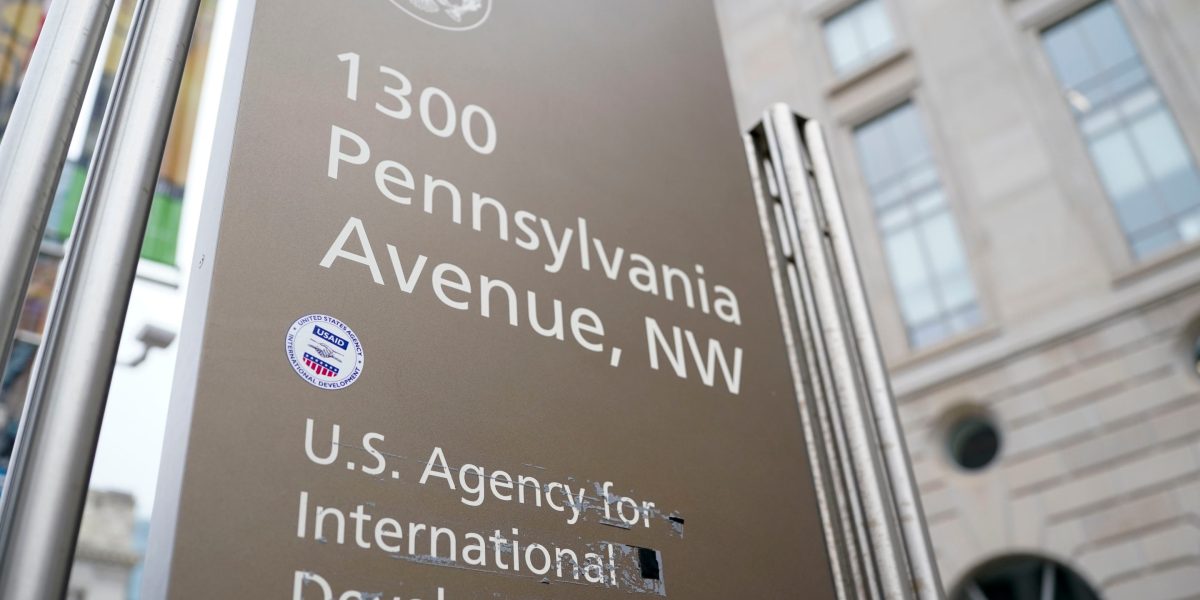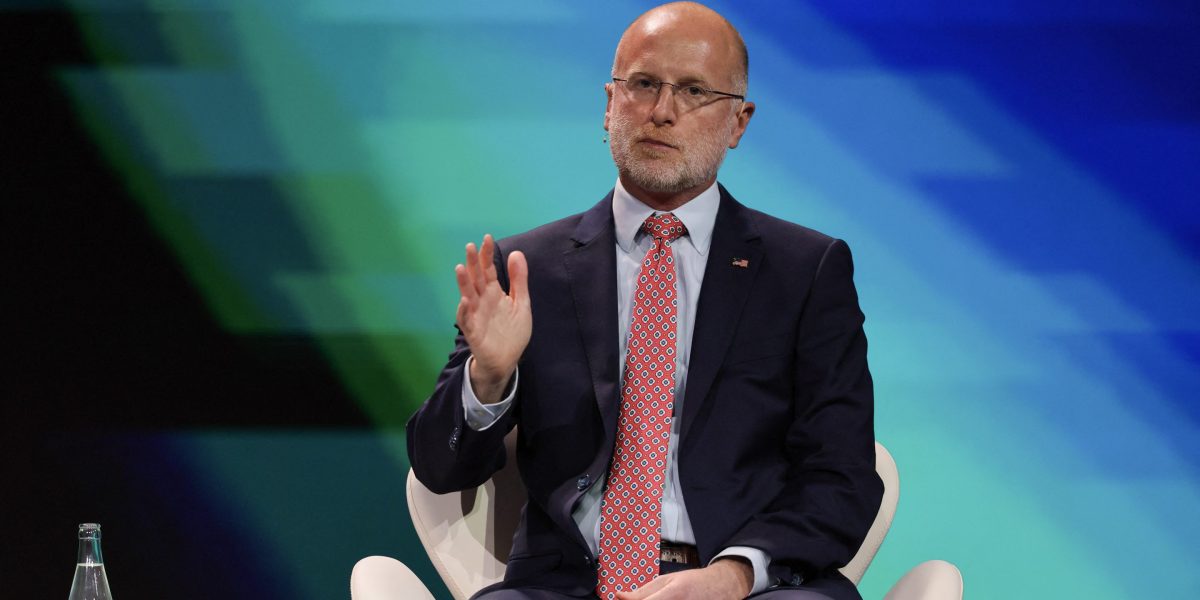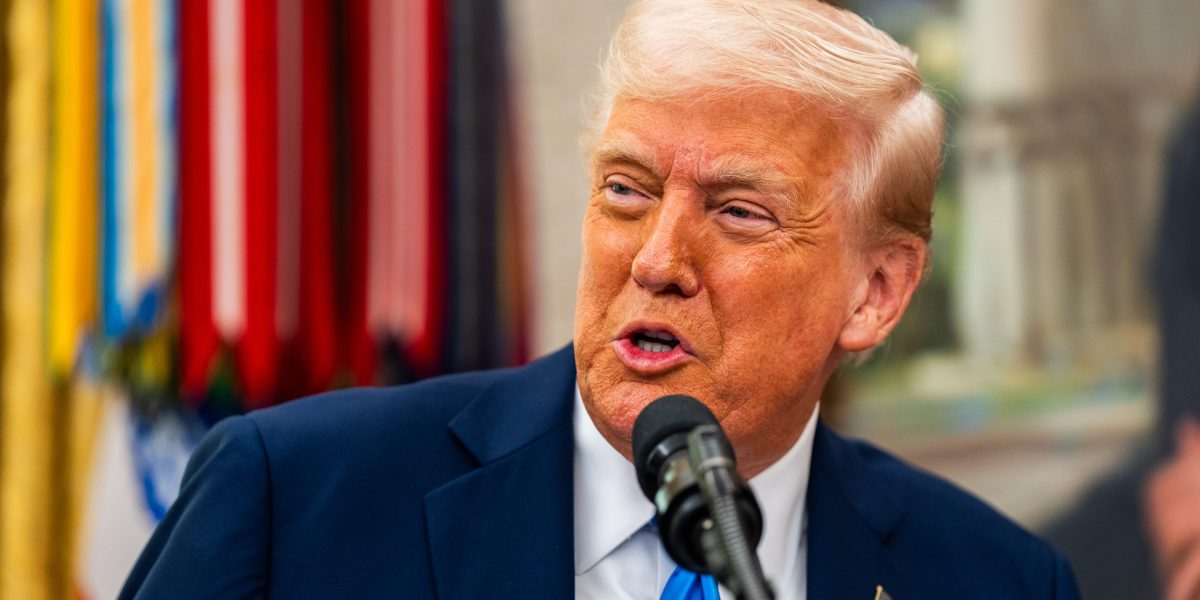The U.S. canceled two aid projects in Cambodia in late February—one to encourage child literacy and another to improve nutrition and development for kids under five. A week later, China’s aid agency announced funding for programs to achieve almost identical goals.
“Children are the future of the country and the nation,” China’s ambassador to Cambodia Wang Wenbin said at the event, standing next to the country’s health minister and a UNICEF official. “We should care for the healthy growth of children together.”
While China’s announcement didn’t include a dollar figure, the Chinese money essentially funds the same types of initiatives and development goals as efforts terminated as part of the Trump administration’s dismantling of USAID, according to two people with knowledge of the U.S. projects, who weren’t authorized to speak publicly.
Both focused on “inclusive education” and the “most vulnerable children,” according to news releases and procurement documents. They both provided school supplies, offering hand-washing materials and improving outcomes for “vulnerable” families and households, newborns and children with disabilities, according to the people.
The price tag for the U.S. programs—$40 million—was small compared with the $27.7 billion in savings the Trump administration said this week it saved by axing thousands of aid contracts. But for Cambodia, whose national GDP is roughly equivalent to that Vermont, it was a big sum, and replacing lost foreign funds has been a priority.
The State Department, which oversees USAID and may now absorb the agency entirely, said in a statement that the U.S. was funding aid programs that make Americans wealthier and more secure. At the same time, it said the U.S. had achieved “significant progress” by investing in Cambodia’s development over the past 30 years, “partnering closely” with the government.
“Despite changes in the U.S. approach to foreign assistance, we hope to see our relationship with Cambodia productively mature as we make America safer, stronger, and more prosperous,” the department added in the statement.
The contracts were terminated on Feb. 26 after President Donald Trump and adviser Elon Musk launched a sweeping overhaul of U.S. foreign assistance, which included dismantling the U.S. Agency for International Development.
Although it’s only one example, it appears to confirm fears voiced by Democratic and some Republican lawmakers, aid advocates and former U.S. officials: By slashing foreign aid, Trump is giving China an easy opportunity to fill a vacuum and gain a soft-power advantage in countries where the global adversaries compete for influence.
That’s especially urgent in Cambodia, where the U.S. has spent roughly $1 billion since the 1990s. Washington has long waged an uphill battle with China in Southeast Asia, and Cambodia in particular. The Biden administration raised concerns about Chinese military influence at the country’s Ream Naval Base over the last four years.
But more recently, the U.S. has moved to strengthen defense ties with the government in Phnom Penh, which granted an American warship access to Ream for the first time late last year.
‘Diplomatic gift’
“It’s a diplomatic gift” to China, said Charles Kenny, a senior fellow at the Center for Global Development. “In every country where there’s a serious USAID cut, if they put a small amount of money into a health and education project and say, ‘Look, we’re ramping up,’ that does seem to be a bit of a publicity gift for them. And I’m sure they’re smart enough to take it.”
Since the Trump administration moved to shut down USAID, terminate most of its foreign aid contracts, and furlough or place on leave most of its employees, U.S. lawmakers, development experts and national security professionals have highlighted the geopolitical risks of curtailing U.S. foreign aid in the developing world.
Many of those lawmakers and experts have warned that China could move in, gaining further influence over developing nations after wooing officials in Africa, Asia and South America for years with tens of billions in loans focused mostly on infrastructure through Beijing’s Belt and Road Initiative.
And it certainly has. China already announced funding for a Cambodian de-mining initiative that was dropped, and later restored, by the U.S. In mid-March, Beijing also announced an early childhood development project in Rwanda, where USAID recently curtailed contracts. And Chinese officials have reportedly offered to make up for funding gaps in Nepal, nestled between India and China.
Will Parks, the Cambodia representative for the United Nations Children’s Fund, said in a statement that the organization and Cambodia signed a partnership with China in 2024, based on a proposal from 2022. It was launched earlier this month and “complements” funding from other nations, Parks said.
“Cambodia has made tremendous progress for children over the past decade,” he said. “But further reductions of aid budgets could jeopardize these hard-won achievements.”
Cambodia’s government was explicit about drawing a link.
“The Cambodian government works with many partners, and we never rely on any one partner exclusively,” government spokesman Pen Bona said via text message in response to questions. “So if one partner withdraws support, we seek to find another partner to replace it.”
China “will continue to provide assistance to economic and social development” in Cambodia “under the framework of South-South cooperation,” the Chinese Foreign Ministry said in a statement.
“China’s aid policy remains consistent and clear,” the Foreign Ministry continued. “China’s principles of non-interference, not attaching any political strings, not giving empty promises remain unchanged.”
In a closed-door hearing on Capitol Hill this month, Trump appointee Pete Marocco, who led the assault on USAID, was asked about the Cambodia projects and the timing of China’s swift announcement, according to one person familiar with the session. Marocco brushed off concerns about China increasing its influence, this person said.
Marocco did not respond to a request for comment.
While Trump’s team have said the canceled projects brought no benefits to Americans, Diana Putman, who retired as USAID’s acting assistant administrator for Africa, said the agency’s billions in foreign assistance helped give U.S. ambassadors a crucial advantage.
“Their leverage and ability to make a difference in terms of foreign policy in that country is backed up by the money that they bring, and in the Global South that money is primarily the money that USAID has,” Putman said.
This story was originally featured on Fortune.com
Source link


 Entertainment8 years ago
Entertainment8 years ago
 Politics8 years ago
Politics8 years ago
 Entertainment8 years ago
Entertainment8 years ago
 Entertainment8 years ago
Entertainment8 years ago
 Tech8 years ago
Tech8 years ago
 Tech8 years ago
Tech8 years ago
 Politics8 years ago
Politics8 years ago
 Tech8 years ago
Tech8 years ago






